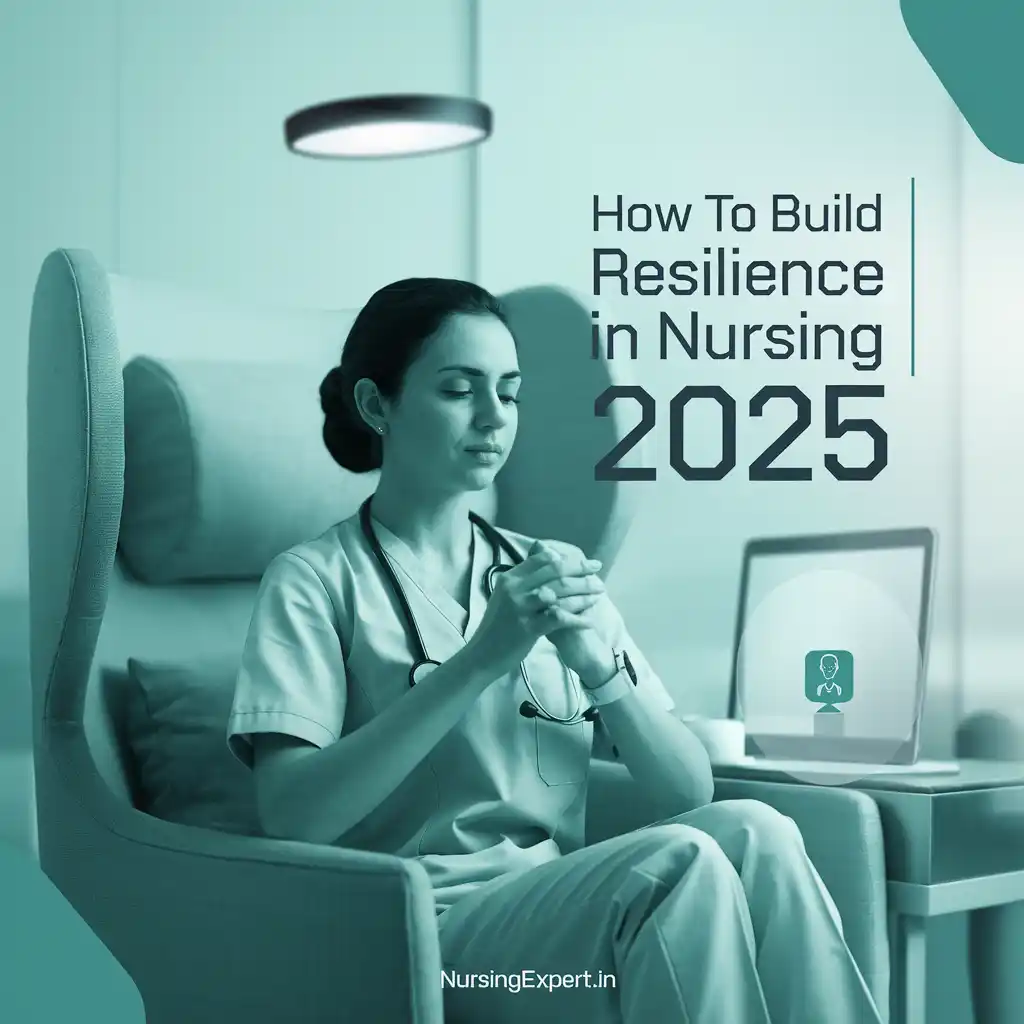Nursing is a demanding profession that challenges both the body and mind. In 2025, building resilience is essential to thrive amid long shifts, high emotional stress, and rapidly evolving healthcare technologies. Resilience in nursing enables professionals to bounce back from setbacks, maintain their well-being, and provide exceptional patient care—even in the face of adversity.
Thank you for reading this post, don't forget to subscribe!
This article explores evidence-based strategies and practical tips for building resilience in nursing. By incorporating self-care practices, mindfulness, continuous learning, and supportive workplace relationships, nurses can enhance their ability to cope with stress and maintain long-term personal and professional health.
Introduction
Nurses often face intense physical and emotional demands as they care for patients in critical, high-pressure environments. The persistent exposure to challenging situations can lead to burnout and stress, potentially compromising the quality of patient care. Building resilience is not only about surviving these challenges but also about thriving despite them. In 2025, fostering resilience has become a cornerstone of modern nursing practice, promoting sustainable careers and ensuring that patient care remains compassionate, effective, and safe.


Building resilience involves developing strategies to manage stress, improve mental well-being, and cultivate a supportive network. This comprehensive guide outlines best practices for resilience building, highlights the benefits of a resilient mindset, and discusses future trends that will empower nurses to navigate the evolving healthcare landscape.
Understanding Resilience in Nursing
a. What is Resilience?
Resilience is the ability to recover quickly from setbacks, adapt to change, and keep going in the face of adversity. In nursing, resilience means:
- Emotional Fortitude: Managing stress, anxiety, and emotional exhaustion.
- Adaptability: Adjusting to new technologies, protocols, and patient needs.
- Persistence: Continuing to deliver high-quality care despite challenges.
- Self-Care: Engaging in practices that promote personal well-being and long-term health.
b. Why Resilience Matters in Nursing
Resilience is crucial for several reasons:
- Improved Patient Outcomes: Resilient nurses are better equipped to provide compassionate and effective care, which leads to better patient experiences and outcomes.
- Enhanced Job Satisfaction: Building resilience reduces burnout, enhances morale, and supports sustainable career longevity.
- Stress Reduction: Effective stress management through resilience techniques helps maintain mental and physical health.
- Team Cohesion: Resilient individuals contribute to a positive work environment, fostering teamwork and collaboration among healthcare staff.
Strategies for Building Resilience
a. Self-Care Practices
i. Prioritize Physical Health
- Regular Exercise: Incorporate physical activity into daily routines. Even short periods of walking, yoga, or stretching can significantly reduce stress and boost energy.
- Balanced Nutrition: Maintain a balanced diet that supports overall health and energy levels. Plan meals in advance to ensure proper nutrition during busy shifts.
- Adequate Sleep: Develop a sleep routine that allows for quality rest, even with shift work. Consider short naps if permitted in your work environment.
ii. Focus on Mental and Emotional Well-Being
- Mindfulness and Meditation: Practice mindfulness exercises or meditation daily to center your thoughts and reduce anxiety. Simple techniques like deep breathing can be very effective during high-stress moments.
- Journaling: Keep a reflective journal to track daily experiences, express emotions, and recognize personal growth over time.
- Professional Counseling: Don’t hesitate to seek professional counseling or therapy when needed. Many organizations offer employee assistance programs (EAPs) to support mental health.
b. Continuous Professional Development
i. Lifelong Learning
- Ongoing Education: Attend workshops, webinars, and courses on resilience, stress management, and self-care. This can help you adopt new strategies and stay updated on best practices.
- Simulation Training: Participate in simulation exercises that focus on handling stressful, high-pressure scenarios. These sessions can provide a safe space to practice coping strategies.
- Certification Programs: Consider programs and certifications in advanced nursing practice or wellness that emphasize resiliency and self-care techniques.
ii. Building a Mentorship Network
- Seek Mentors: Connect with experienced nurses who can offer guidance, share strategies, and provide emotional support.
- Peer Support: Create or join peer support groups where colleagues can share experiences, challenges, and advice. Regularly scheduled debrief sessions can be particularly helpful.
- Interdisciplinary Collaboration: Engage with professionals from various healthcare disciplines to gain different perspectives and holistic strategies for resilience.
c. Leveraging Technology
i. Digital Tools for Stress Management
- Mobile Apps: Use apps like Headspace, Calm, or Insight Timer for guided meditation, stress relief, and mindfulness exercises. These apps are designed to help manage stress and improve focus.
- Wearable Devices: Track stress levels, heart rate, and sleep patterns using wearable devices. Monitoring physical indicators can help adjust self-care practices accordingly.
- Virtual Support Groups: Participate in online communities and forums dedicated to nursing and healthcare provider wellness to share experiences and strategies in real time.
ii. Telehealth and Virtual Counseling
- Access Professional Support: Leverage telehealth services for virtual counseling sessions if in-person therapy is not available.
- Educational Webinars: Engage in webinars focused on resilience and stress management in the nursing field.
- Digital Journaling: Use digital journaling platforms to reflect on your daily experiences and monitor your emotional trends.
d. Fostering a Supportive Work Environment
i. Advocate for Organizational Change
- Wellness Programs: Encourage your workplace to implement comprehensive wellness programs that include mental health support, stress management workshops, and resilience training.
- Flexible Scheduling: Advocate for scheduling practices that allow for adequate breaks and manageable workloads to reduce stress and fatigue.
- Open Communication: Promote a culture where staff feel comfortable discussing their mental health challenges without fear of stigma or retribution.
ii. Team-Building and Peer Support
- Regular Check-Ins: Participate in regular team meetings or debriefs to share challenges and successes with colleagues.
- Social Activities: Engage in informal social gatherings or team-building activities to foster relationships and create a support network within the workplace.
- Leadership Support: Encourage managerial staff to model self-care behaviors and support initiatives that prioritize staff well-being.
Addressing Common Challenges
a. Time Constraints
- Efficient Routines: Integrate short mindfulness exercises, deep-breathing sessions, or stretching breaks into daily routines.
- Digital Reminders: Use technology (apps or smartwatches) to remind you to take breaks and stay hydrated.
b. Overcoming Workload Pressures
- Delegation: Share responsibilities with colleagues and use team-based approaches to manage high workloads.
- Prioritize Tasks: Focus on the most critical tasks first and set realistic goals for each shift.
c. Combating Burnout and Stress
- Regular Reflection: Use journaling and reflective practice to process daily experiences and identify stressors.
- Support Systems: Rely on mentor and peer networks for advice and emotional support during challenging times.
- Professional Counseling: Seek help when needed to address underlying mental health issues.
d. Integrating Technology
- Training on Digital Tools: Ensure you receive proper training on wellness apps and wearable devices to maximize their benefits.
- User-Friendly Solutions: Advocate for the selection of intuitive digital tools that fit seamlessly into busy schedules.
- Ongoing Technical Support: Access technical support to resolve any issues quickly, ensuring uninterrupted use of digital resources.
Future Trends in Nurse Resilience
a. AI-Driven Personalized Wellness Programs
- Predictive Analytics: AI may analyze personal data (e.g., stress markers, sleep patterns) to create personalized wellness plans.
- Tailored Recommendations: Expect more sophisticated digital tools that offer real-time advice on self-care practices.
b. Virtual Reality (VR) for Stress Management
- Immersive Experiences: VR simulations may offer immersive stress-reduction exercises, recreating calming environments for mindfulness and relaxation.
- Enhanced Training: VR can be used for simulation training that prepares nurses for high-stress situations in a controlled, virtual environment.
c. Expanded Interprofessional Support Networks
- Global Connectivity: Digital platforms will enable nurses worldwide to connect, share best practices, and offer mutual support, reducing isolation and enhancing collaboration.
- Cross-Disciplinary Collaboration: Integrating mental health professionals into support networks will further enrich resilience strategies and ensure holistic care.
d. Organizational and Policy Reforms
- Wellness-Focused Policies: Future regulations and institutional policies will likely mandate comprehensive wellness programs for healthcare providers.
- Funding Increases: Expect increased funding for programs designed to support mental health, stress management, and resilience-building in nursing.
- Standardized Training: Development of standardized training modules on emotional intelligence and resilience will become part of professional development curricula.
Frequently Asked Questions (FAQs)
Q1: What is resilience in nursing, and why is it important?
A: Resilience is the ability to cope with and recover from stressful situations, challenges, or setbacks. For nurses, resilience is crucial to managing high workloads, reducing burnout, and maintaining the capacity to provide high-quality, compassionate care.
Q2: What are some effective self-care strategies for building resilience?
A: Effective strategies include regular physical exercise, balanced nutrition, adequate sleep, mindfulness practices (such as meditation and deep breathing), and reflective journaling. Additionally, building supportive relationships through peer support and mentorship is beneficial.
Q3: How can technology help nurses build resilience?
A: Technology, such as mobile apps for stress management and wearable devices for tracking health metrics, can provide personalized feedback and reminders for self-care. Virtual reality and telehealth platforms also offer avenues for stress management training and access to counseling.
Q4: Why is building a support network important for nurse resilience?
A: A strong support network offers emotional, professional, and practical support. It helps nurses share experiences, gain advice, and reduce the sense of isolation that can lead to burnout.
Q5: How can interdisciplinary collaboration enhance nurse resilience?
A: Interdisciplinary collaboration provides diverse perspectives, shared problem-solving, and mutual support, which are all key to reducing stress and improving patient care outcomes. Working with a team fosters a sense of unity and reinforces the collective strength of the healthcare system.
Q6: What role does continuous education play in building resilience?
A: Ongoing professional development equips nurses with updated skills, coping strategies, and knowledge of the latest self-care practices. It promotes a growth mindset and helps nurses adapt to the changing demands of their profession.
Q7: What future trends are expected to impact nurse resilience?
A: Future trends include AI-driven personalized wellness programs, immersive VR training environments, enhanced digital support networks, and increased organizational and policy focus on nurse well-being.
Conclusion
Resilience is a critical quality for nurses, enabling them to navigate the stresses and challenges of an ever-evolving healthcare landscape. In 2025, cultivating resilience is not only about individual self-care—it is about building a supportive network, leveraging technology, and continuously learning and adapting. Through mindful practices, robust digital tools, and strong interpersonal relationships, nurses can reduce burnout, enhance their mental and physical well-being, and, ultimately, provide higher quality patient care.
The benefits of resilience extend beyond the individual nurse to the entire healthcare team and the patients they care for. As the future unfolds, innovative technologies and organizational reforms will continue to support the development of resilience among healthcare professionals. With a focus on both personal well-being and professional growth, nurses can thrive in their roles and make a lasting impact on patient care.
References and Sources
- American Nurses Association (ANA). (2023). Nurse Well-Being and Self-Care Strategies. Retrieved from https://www.nursingworld.org
- Goleman, D. (2021). Emotional Intelligence: Why It Can Matter More Than IQ. Bantam Books.
- Journal of Nursing Scholarship. (2023). Building Resilience in Nursing Practice. Retrieved from https://journals.lww.com/jnursing
- Institute for Healthcare Improvement (IHI). (2022). Enhancing Healthcare Provider Resilience. Retrieved from https://www.ihi.org


